detail profile peter kubelka

Riwayat Hidup
Peter Kubelka (born 23 March 1934 in Vienna, Austria) is an Austrian experimental filmmaker, architect, musician, curator and lecturer.
His films are primarily short experiments in linking seemingly disparate sound and images.
He is best known for his 1966 avant-garde classic Unsere Afrikareise (Our Trip to Africa).
Kubelka made 16mm films, mostly shorts, and is known for his 1960 film Arnulf Rainer, a "flicker film" which alternates black and clear film that is projected to create a "flicker" effect.
Kubelka also designed the Anthology Film Archives custom film screening space in the 1970s in New York.
The theater had highly raked (tiered) seating with a cowel over each seat and visual barriers between each seat so that the audience member was totally isolated visually from other patrons.
The theater was painted black and the seating was covered in black velvet.
The only light in the room between film showings came from a spotlight aimed at the screen, thus ensuring that the only light in the room came from the screen.
The design is illustrative of the purist aesthetic of the Avant Garde film movement of that era.
Description above from the Wikipedia article Peter Kubelka, licensed under CC-BY-SA, full list of contributors on Wikipedia.
Info Pribadi
Peran Yang Di Mainkan Peter Kubelka
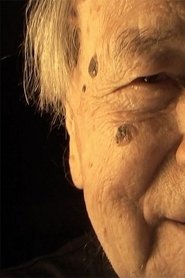 The tapes in the program consist...
The tapes in the program consist...Tapes 2020
The tapes in the program consist of some of Mekas’ earliest cassettes from the 1990s not long after he first began working with video as well as more recent mini-DV tapes from 2010s. The contents of the tapes have not been previously seen in their entirety. The footage provides rare insight into aspects of Mekas’ video-making practice, as well as his activities, thoughts, dreams, and concerns, especially during the later years of his life.
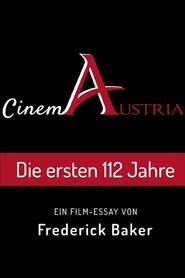 This historical and analytical documentary draws...
This historical and analytical documentary draws...Cinema Austria, the first 112 Years 2020
This historical and analytical documentary draws attention to the background of the roots of "New Austrian Cinema" and presents Austria as a film country to be taken seriously. The audience gets to see rare early works by well-known filmmakers as well as shots of landscapes that served as a source of inspiration and locations that have produced important Austrian films since the end of the 19th century.
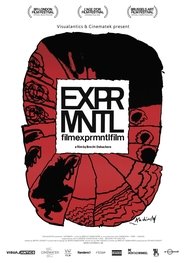 Knokke Belgium A small mundane coastal...
Knokke Belgium A small mundane coastal...EXPRMNTL 2016
Knokke, Belgium. A small mundane coastal town, home to the beau-monde. To compete with Venice and Cannes, the posh casino hosts the second ‘World Festival of Film and the Arts’ in 1949, organised in part by the Royal Cinematheque of Belgium. To celebrate cinema’s 50 year existence, they put together a side program showcasing the medium in all its shapes and forms: surrealist film, absolute film, dadaist films, abstract film,… The side program would soon become a festival in its own right: ‘EXPRMNTL’, dedicated to experimental cinema, and would become a mythical gathering of the avant-garde…
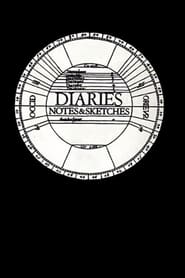 An epic portrait of the New...
An epic portrait of the New...Diaries, Notes, and Sketches 2013
An epic portrait of the New York avant-garde art scene of the 60s.
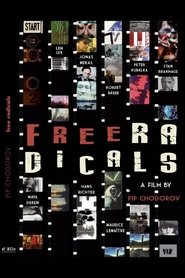 Experimental filmmaker Pip Chodorov traces the...
Experimental filmmaker Pip Chodorov traces the...Free Radicals: A History of Experimental Film 2011
Experimental filmmaker Pip Chodorov traces the course of experimental film in America, taking the very personal point of view of someone who grew up as part of the experimental film community.
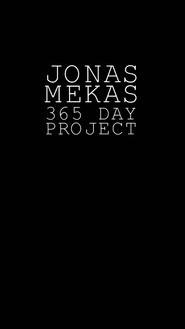 This exhibition focuses on Jonas Mekas 365...
This exhibition focuses on Jonas Mekas 365...365 Day Project 2007
This exhibition focuses on Jonas Mekas’ 365 Day Project, a succession of films and videos in calendar form. Every day as of January 1st, 2007 and for an entire year, as indicated in the title, a large public (the artist's friends, as well as unknowns) were invited to view a diary of short films of various lengths (from one to twenty minutes) on the Internet. A movie was posted each day, adding to the previously posted pieces, resulting altogether in nearly thirty-eight hours of moving images.
 A compilation of over 30 years of...
A compilation of over 30 years of...As I Was Moving Ahead, Occasionally I Saw Brief Glimpses of Beauty 2000
A compilation of over 30 years of private home movie footage shot by Lithuanian-American avant-garde director Jonas Mekas, assembled by Mekas "purely by chance", without concern for chronological order.
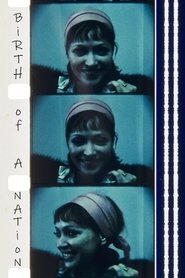 Filmmaker Jonas Mekas films 160 underground film...
Filmmaker Jonas Mekas films 160 underground film...Birth of a Nation 1997
Filmmaker Jonas Mekas films 160 underground film people over four decades.
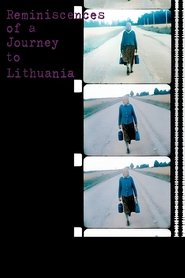 A 197172 documentary film by Jonas Mekas...
A 197172 documentary film by Jonas Mekas...Reminiscences of a Journey to Lithuania 1996
A 1971–72 documentary film by Jonas Mekas. It revolves around Mekas' trip back to Semeniškiai, the village of his birth.
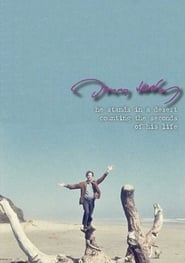 A film collage tracing the story...
A film collage tracing the story...He Stands in a Desert Counting the Seconds of His Life 1986
A film collage tracing the story of the lives, loves, and deaths within the artistic community surrounding Jonas Mekas.
 Cinmaton is a 156hour long experimental...
Cinmaton is a 156hour long experimental...Cinématon 1978
Cinématon is a 156-hour long experimental film by French director Gérard Courant. It was the longest film ever released until 2011. Composed over 36 years from 1978 until 2006, it consists of a series of over 2,821 silent vignettes (cinématons), each 3 minutes and 25 seconds long, of various celebrities, artists, journalists and friends of the director, each doing whatever they want for the allotted time. Subjects of the film include directors Barbet Schroeder, Nagisa Oshima, Volker Schlöndorff, Ken Loach, Benjamin Cuq, Youssef Chahine, Wim Wenders, Joseph Losey, Jean-Luc Godard, Samuel Fuller and Terry Gilliam, chess grandmaster Joël Lautier, and actors Roberto Benigni, Stéphane Audran, Julie Delpy and Lesley Chatterley. Gilliam is featured eating a 100-franc note, while Fuller smokes a cigar. Courant's favourite subject was a 7-month-old baby. The film was screened in its then-entirety in Avignon in November 2009 and was screened in Redondo Beach, CA on April 9, 2010.
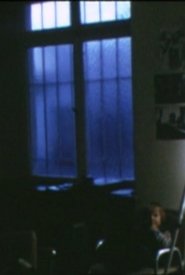 Home movies shot on Super 8mm...
Home movies shot on Super 8mm...